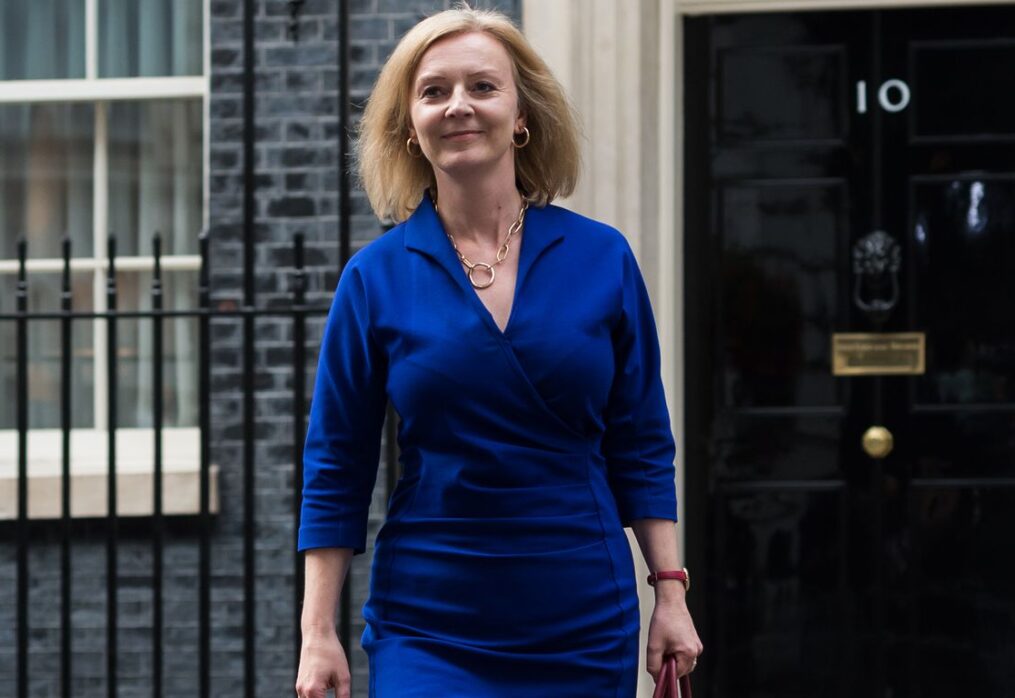Liz Truss wins race to replace Boris Johnson as U.K. prime minister
Liz Truss was announced Monday as the winner of the Conservative Party leadership election and thus the U.K.’s next prime minister, defeating former chancellor Rishi Sunak by a 57% to 43% margin.
Why it matters: In her current role as foreign secretary, Truss has made headlines for her hawkish approach to relations with the EU and the war in Ukraine. She’s also vowed to slash taxes, despite the rocky state of the U.K.’s finances. She will be the third woman to serve as prime minister.
What’s next: Outgoing Prime Minister Boris Johnson will travel to Scotland to formally resign to Queen Elizabeth II. Truss will make that same trip Tuesday to see the queen, before offering her first speech in Parliament.
- Those visits usually take place at Buckingham Palace, but the 96-year-old monarch has requested that the 14th and 15th prime ministers of her tenure make the trip to Balmoral Castle.
How it happened: Johnson resigned after a revolt within his government over a string of scandals, including parties held in Downing Street in violation of pandemic lockdown rules.
- Unlike Sunak, Truss never truly distanced herself from Johnson. She will now inherit the massive parliamentary majority to which Johnson led the Conservatives in the Dec. 2019 general election.
- She was chosen by members of the Conservative Party, a tiny slice of the British electorate (roughly 0.3%) that skews much older, whiter and wealthier than the public in general. That’s led to claims that the process is “undemocratic.”
- The members chose Truss over former chancellor Sunak, who had finished first when Conservative members of Parliament narrowed the field to two in July.
The big picture: Truss voted “remain” in the 2015 Brexit referendum, but went on to become one of her party’s most enthusiastic champions of leaving the EU.
- She has built her political brand in part on tussling with Brussels. Asked last week whether French President Emmanuel Macron was “friend or foe,” Truss replied “the jury’s out.”
What to watch: Truss has promised to lower taxes and vowed unequivocally last week not to introduce any new ones as prime minister.
- But she’s inheriting an exceptionally gloomy economic outlook. The British Chamber of Commerce expects the economy to slump into recession and inflation to hit 14% by year’s end. Brits are facing energy price spikes of up to 80%.
- The political winds are also not particularly auspicious. The Conservatives trail Labour in the polls (though no election is due for two years) and a new YouGov poll found that 52% of voters believe she will make a “poor” or “terrible” prime minister, while just 12% think she’ll be “good” or “great.”
The latest: In her remarks after the results were announced, Truss offered effusive praise for Johnson and promised to “deliver” on tax cuts and the energy crisis, and to win a general election for the Conservatives in 2024.
